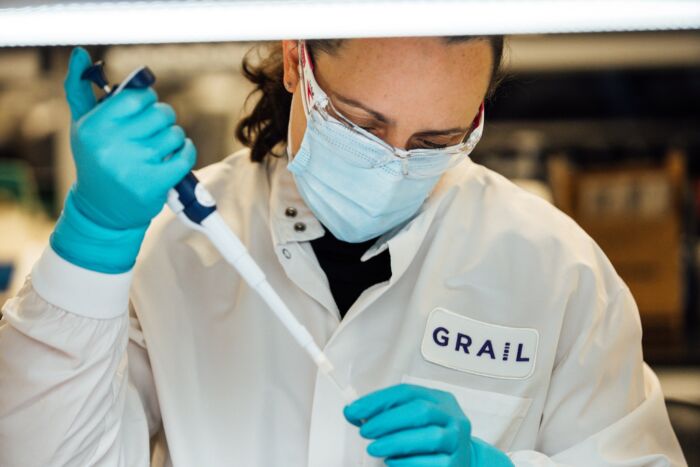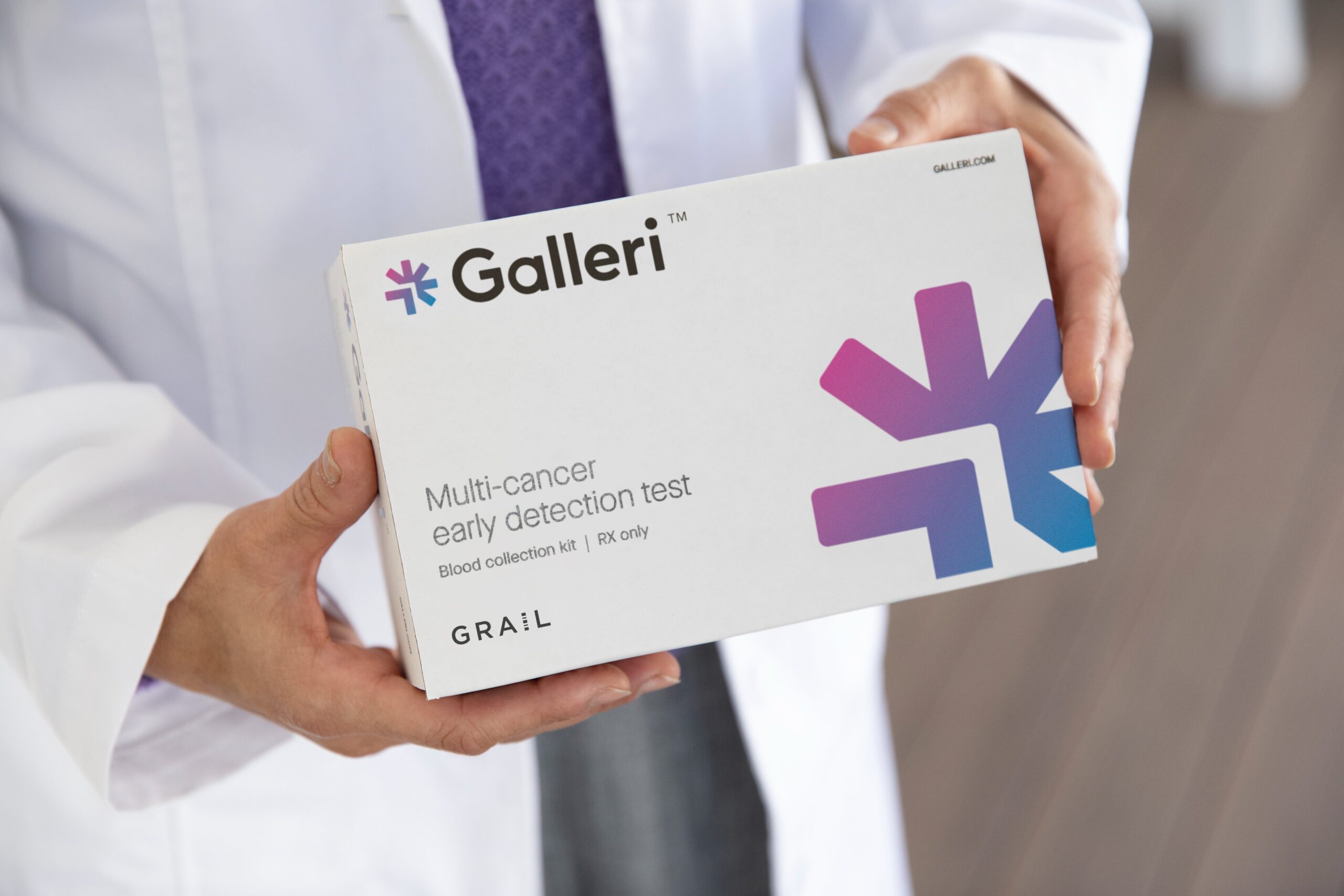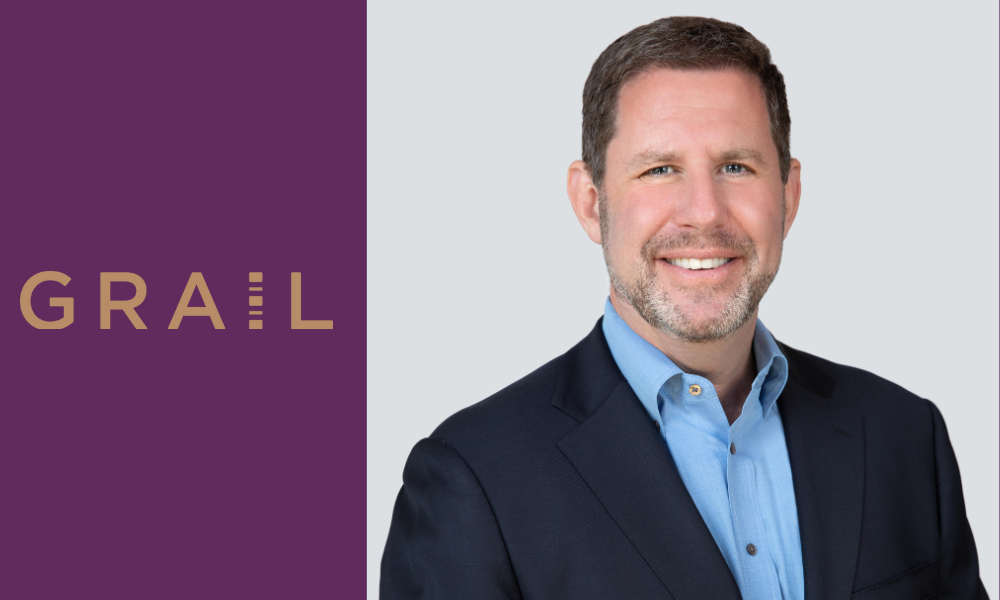As the President of GRAIL – a healthcare company innovating to solve medicine’s most important challenges – Josh Ofman, MD, MSHS and his team of leading scientists, engineers and clinicians, are at the cutting-edge of healthcare.
Insurtech Insights caught up with him to find out how and why he chose to focus on technology in healthcare – and why GRAIL’s work in early cancer detection is so groundbreaking.
You have a very impressive medical background – but you’ve taken a different path to being a hands-on doctor. What led you to medicine in the first place – and can you tell us about those early years?
I wasn’t very science-focused during my undergraduate years, but I studied the history and philosophy of science and I loved science. I come from a family of people in the mental health field, what they called the “helping professions” and decided to try medical school on the advice of my mentors and father.
I immediately fell in love with what I was learning about human biology and human medicine. Once I completed all my training, I decided to go into gastroenterology or digestive diseases largely because I was interested in how technology and healthcare worked, how you could assess its societal value, and how you could figure out how to study it in a way that could tell you whether you were impacting human health or not.
When I was at UCLA doing my residency and fellowship, I did a fellowship in health services research, which focused on studying the healthcare system and how it works and operates and that finally led me into a career in academic medicine. But my deep interest in the role of technology in healthcare ultimately led me to a career in the biotechnology industry.
GRAIL is at the forefront of early cancer detection. How and why did you make the leap from global health economics and policy?
I really enjoyed my time in academia because it gave me an opportunity to do research, teach and see patients. Through this, my interest in the application of technology and innovation in clinical practice gave me the opportunity to be part of a start-up company out of Cedars-Sinai that was doing some very cutting-edge work in clinical decision support and ended up being sold to Cerner Corporation. This business experience evolved into a desire to answer the questions: how do you assess whether a certain kind of technology is going to be beneficial to society, at what cost and at what harm?
In an attempt to answer these questions, I decided to leap into the world of industry and joined Amgen to help evolve the company’s thinking to get more focused on the human, societal and economic value of the products that it was developing in addition to the scientific value.
Cancer is a leading cause of death worldwide. Impact on individuals adds up quickly to an immense system-wide burden. Being able to apply my passion and experience to the war on cancer that we’ve been fighting for 50+ years seemed to be the next logical step in my professional career.
Dr Josh Ofman
My work at Amgen exposed me to even broader parts of the healthcare ecosystem, and enabled me to work with policymakers and decision makers around the world to better understand the importance of investing in healthcare innovation and biotechnology. Also while at Amgen, my interest in human genomics developed and I saw the applications to a variety of diagnostics and therapeutics. I recognized that innovation in genomics and machine learning would be transformative for healthcare.
Cancer is a leading cause of death worldwide. Impact on individuals adds up quickly to an immense system-wide burden. Being able to apply my passion and experience to the war on cancer that we’ve been fighting for 50+ years seemed to be the next logical step in my professional career.

What are the biggest challenges faced by cancer patients in the US medical environment, when it comes to health insurance policies – and why?
Cost seems to be the biggest challenge that patients with cancer face when it comes to health insurance policies. Within the next 10 years, cancer costs are expected to be more than $245 billion annually, with the highest costs among those with late-stage diagnoses. We know that the high cost of cancer care and treatments are an enormous burden on families and caregivers.
In fact, the NCI has profiled the relationship between cancer and financial toxicity for patients and families. In order to address this unacceptable situation, we are pioneering new technologies and innovative new approaches, such as validated MCED tests that can detect cancer early, before symptoms appear, where costs are much lower and more manageable, and where survivors can maintain productivity and have more quality time with their loved ones.
Tell us about Galleri. When did it launch? How many types of cancer can it detect? And how expensive/difficult is it to administer?
GRAIL launched Galleri in the United States in mid-2021. The Galleri multi-cancer early detection test is a new proactive tool to screen for cancer. Current cancer screening is limited to just five cancer types of the several hundred types of cancer that exist. The majority of cancer deaths are occurring due to cancers we are not looking for at all.
Researchers have consistently found that treatment costs increase by stage across all cancers. For example, treating metastatic cancers can be up to seven times higher than treating early-stage cancers.
Dr Josh Ofman
Galleri is a blood test that can help screen for many of the most deadly types of cancer that don’t have recommended screening today, including some of the most aggressive cancers in early stages such as, endometrial, esophageal, gastrointestinal stromal, head and neck, liver, pancreatic, and rectal cancers. Galleri looks for a cancer signal in blood that is shared by many cancers, and it predicts where in the body that signal is coming from to guide the diagnostic work-up.
The current list price for the Galleri test is $949 and is recommended as a physician prescribed test,.Cancers growing in the body shed DNA into the bloodstream, and although there are many types of cancer, the DNA fragments act like a unique “fingerprint” of cancer. The Galleri test is a simple annual blood test that screens for a “fingerprint” of the deadliest cancers before they become symptomatic. It also provides direction to your doctor on the cancer’s origin and next steps for diagnosis.
How much of a difference does early detection make to patient outcomes – as well as to insurers? And, can you tell us about any case studies/examples that demonstrate this?
In many cases, we are finding cancer too late, when it’s already spread, and effective treatment options are more limited. This is why GRAIL is urgently advancing the science and adoption of multi-cancer early detection (MCED). Finding cancers in their localized state, before they have metastasized, provides patients with the most treatment options and the best chance for a good outcome, and even potentially a cure.

Researchers have consistently found that treatment costs increase by stage across all cancers. For example, treating metastatic cancers can be up to seven times higher than treating early-stage cancers. Other studies have shown that a cancer diagnosis is associated with significant indirect costs, including reduced productivity, increases in absenteeism, and changes in employment status for both patients and caregivers. For example, unsurprisingly, a recent study showed productivity loss and indirect costs were significantly greater among patients diagnosed with cancer at late versus early stages.
GRAIL has been named on Fortune’s 2023 ‘Change the World’ list. How important are accolades like this, in driving forward GRAIL’s mission?
It’s an honor to be included on Fortune’s Change the World list alongside companies who are being recognized for their measurable social impact, business results and innovation. GRAIL’s mission – to detect cancer early, when it can be cured – is an ambitious one but one where science, technology and unmet need can drive important change, as there is really nothing acceptable about the status quo in cancer detection.
“we are finding cancer too late, when it’s already spread, and effective treatment options are more limited… Finding cancers in their localized state, before they have metastasized, provides patients with the most treatment options and the best chance for a good outcome, and even potentially a cure.
Dr Josh Ofman
Over 70% of cancer deaths are caused by cancers that have no available screening today. Solving this problem is one of the most important challenges in all of healthcare. We believe making validated multi-cancer early detection (MCED) tests to be used in addition to recommended screening programs will help to dramatically increase cancer detection from screening in the population, and improve public health.
What are your predictions for the health insurance space, over the next five years? What changes would you like to see happening?
We know that to have a sustainable and affordable healthcare system we must make a transition from a break-it-and-fix-it healthcare system to one focused on prediction, prevention and early detection. GRAIL’s technology in MCED can lead the way along with other precision medicine initiatives in driving this critical transition.
As we approach more broad adoption, and even get FDA approval, we expect many more payers to provide coverage for this ground breaking technology that can dramatically increase the cancer detection rate in the population, improve patient outcomes, and reduce the costs of cancer detection and treatment. We think that payer adoption will be one of the most important ways to recognize that multi-cancer early detection technology is a proactive step in shifting the cancer screening paradigm, and will help drive the paradigm shift that is needed to help bend the curve on cancer mortality.

Join GRAIL leaders at Insurtech Insights USA 2024 in New York on June 5-6th at the Javits Center
Josh Ofman, MD, MSHS, President of GRAIL, LLC, will present the session: Using Multi-Cancer Early Detection (MCED) and Innovation to Make an Impact, exploring the latest advancements in MCED technologies and their significant implications for early cancer detection and treatment.
He will also take part in Redefining What Life Insurance Can Do – a 30-minute session that will feature a panel discussion with Sears Merritt, Head of Enterprise Technology & Experience at Mass Mutual, Marc Giguere, President & CEO, US (Life and Health) at Munich Re. The panel will be moderated by Megan Kuczynski, President, USA at Insurtech Insights.
Wendy Strait, VP of Enterprise Channels Growth at GRAIL, will also be taking part in the live panel debate ‘Building Life Insurance Products for the Next Generation. The 40-minute panel discussion will also feature Dawn Goldbacher, Former VP, Head of Simplified Solutions Sales & Distribution at Prudential Financial, Laura Boylan, VP of Underwriting Solutions at Bestow, and Robert Kirk, CEO & Founder of InterGen Data. The session will be moderated by Ken Leibow, Founder & CEO of InsurTech Express.
Interview by Joanna England








